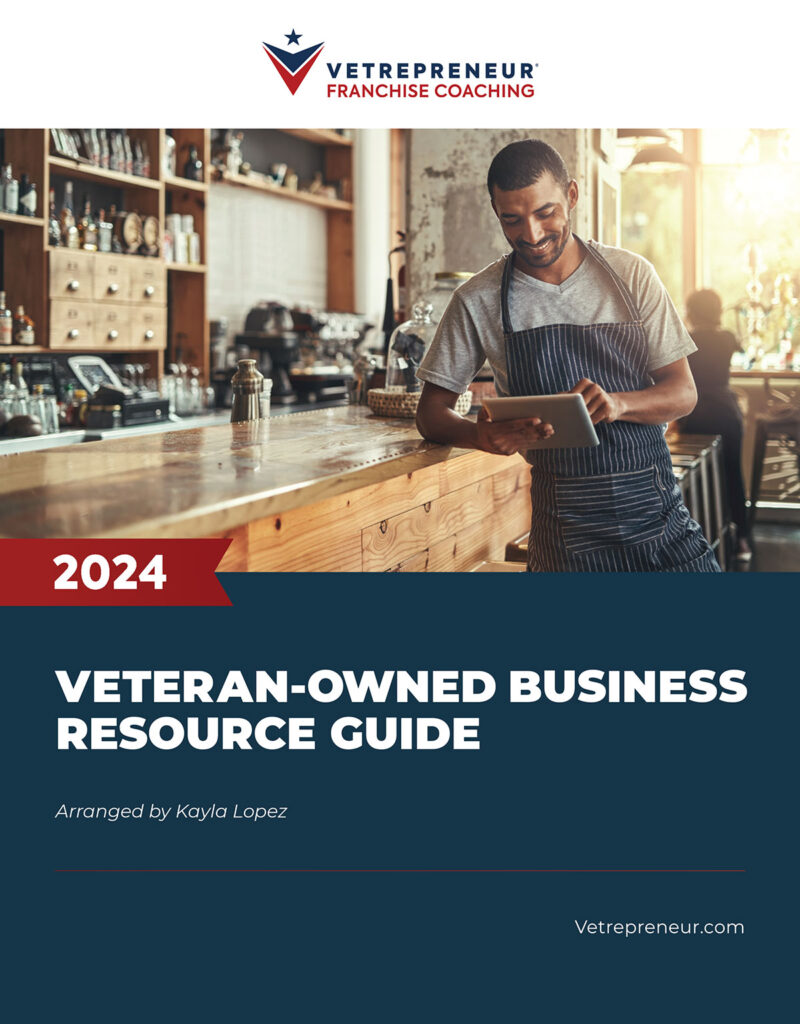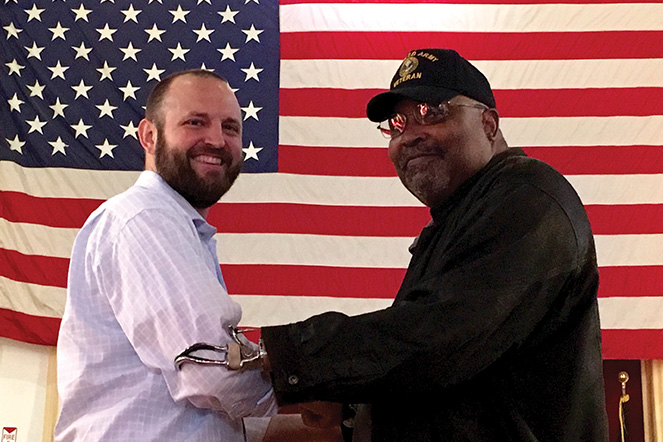Main Points
- Specific tax credits such as the Work Opportunity Tax Credit (WOTC) are available to veteran-owned businesses to help reduce tax liabilities.
- Strategic tax planning allows veteran entrepreneurs to maximize deductions and improve financial outcomes.
- Section 179 deductions provide immediate expensing of business equipment, which reduces taxable income.
- The home office deduction can help reduce the overall tax burden for veteran-owned businesses.
- Proper record-keeping and documentation are essential for effectively claiming tax credits and deductions.
The Importance of Tax Planning for Veteran-Owned Businesses
Tax planning is a key component of any successful business, and it is especially important for veteran-owned businesses. With the right strategies, veteran entrepreneurs can not only ensure compliance but also improve their financial health. Taxes are like a battlefield; understanding the landscape can mean the difference between success and failure.

Appreciating the Veteran’s Edge in Business
Veterans come to the business table with a distinct skill set, comprising discipline, leadership, and strategic thinking. These skills can be immensely beneficial in tax planning. By capitalizing on these strengths, veterans can confidently traverse the intricate landscape of tax regulations.
- Specific tax incentives are often available for veterans.
- Resources and programs designed to support their entrepreneurial journey are available to them.
- Their strategic mindset is beneficial in effective financial planning.
Of particular note, veteran-owned businesses can utilize specialized tax credits and deductions, which can considerably lower their tax liabilities. Understanding these benefits is key to maximizing savings and improving the bottom line.
Why is Strategic Tax Planning Important?
Strategic tax planning isn’t just about reducing your taxes, it’s about making smart decisions that will help your business grow over the long term. For veteran-owned businesses, this means finding and using all available tax credits and deductions, while making sure to stay within the law.
By thinking ahead, veteran business owners can manage their cash flow better, use their resources more efficiently, and lay the groundwork for future success. This forward-thinking approach can also help them avoid expensive errors and penalties.
Advantages and Cost Reduction
Veteran-owned businesses can reap considerable benefits from strategic tax planning. By taking advantage of tax credits and deductions, these businesses can reduce their taxable income, leading to significant cost savings. This not only increases profit margins but also provides additional funds for reinvestment and expansion.
Let’s look at this example:
If you’re a veteran who owns a business and invests in energy-efficient equipment, you can claim the Renewable Energy Tax Credit to reduce your tax liability by 30% of the equipment cost. This helps you lower your taxes and promote sustainability at the same time.
So, grasping and utilizing these tax strategies can be a turning point for veteran business owners, boosting their financial prosperity and guaranteeing their business flourishes.
Key Tax Credits for Businesses Owned by Veterans
Tax credits can be incredibly helpful in lowering tax bills. There are a number of credits that are particularly beneficial for businesses owned by veterans. Let’s take a look at some of the most helpful ones.
The Work Opportunity Tax Credit (WOTC)
The Work Opportunity Tax Credit (WOTC) was created to incentivize businesses to hire individuals from select groups, including veterans. This credit can be a great benefit to veteran-owned businesses looking to grow their team.
This is how it operates:
- Employers are eligible for a tax credit that is proportional to the wages of a qualified employee.
- The maximum credit amount fluctuates depending on the target group of the employee and the number of hours they work.
- For employees who are veterans, the credit can reach up to $9,600 per person.
By utilizing the WOTC, businesses owned by veterans can decrease their tax burden and also assist other veterans by offering them jobs.
Credit for Disabled Access
One more useful credit for businesses owned by veterans is the Credit for Disabled Access. This credit is intended to assist small businesses in covering the expenses associated with making their facilities accessible to individuals with disabilities. For more specialized assistance, consider exploring small business tax credit services.
Expenses that qualify include:
- Eliminating architectural obstacles in existing structures.
- Offering materials in formats that are accessible.
- Modifying equipment to make it more accessible.
This credit allows veteran-owned businesses to not only enhance accessibility but also lower their tax burden, making it a beneficial situation for everyone involved.
Green Energy Tax Breaks
As the world becomes more aware of the importance of sustainability, making the switch to renewable energy is not only an ethical decision, but also a smart financial move. By investing in things like solar panels or wind turbines, veteran-owned businesses can take advantage of Green Energy Tax Breaks.
Such credits can offset a large portion of the investment, making it easier to go green. In addition, cutting energy costs can lead to long-term savings, further improving the company’s financial health. For specialized assistance, consider exploring small business tax credit services.
By learning about and taking advantage of these tax credits, businesses owned by veterans can get the best financial results and help create a sustainable future.
Employee Perks and Payroll Deductions
As a veteran-owned business, offering employee perks can be a great method to draw in and keep talent. But did you know these perks can also provide tax benefits? Payroll deductions for employee perks are a key part of tax planning that can lower taxable income.
Take, for instance, contributions to employee retirement plans like 401(k)s. They are tax-deductible. This is a win-win situation as it not only supports your employees’ financial futures but also reduces your business’s tax bill. In the same vein, offering health insurance and other benefits can be deducted as business expenses. For more insights, explore these startup business tax strategies.
By thoughtfully providing and handling these benefits, businesses owned by veterans can boost their attractiveness as employers while improving their tax situations. This tactic results in a mutually beneficial situation for the business and its employees. For more insights, explore these small business tax planning strategies.
End-of-Year Tax Planning Tips
With the fiscal year drawing to a close, it’s essential for businesses owned by veterans to start thinking about their end-of-year tax planning. This means taking a close look at their financial activities and making some smart choices that will help to reduce their tax bill and boost their financial results. For more insights, consider these tax documentation organization tips.
Start by evaluating your present financial condition. Examine your income, costs, and estimated tax obligations. This will give you a clear idea of your current situation and what steps you need to take to improve your tax status.
Next, you should think about putting certain strategies into action to lower your taxable income and get the most out of your deductions. These strategies could involve timing your business expenses, going over your asset purchases, and taking another look at your business structure.

When to Spend Money on Your Business
Just like in comedy, timing is everything. This is especially true when it comes to planning your taxes. If you’re a veteran-owned business, you can manipulate your taxable income for the year by carefully timing when you make your business expenses. For example, you might want to consider making purchases that you can deduct in the current year, such as supplies or equipment, sooner rather than later. For more guidance, check out these small business tax planning strategies.
On the other hand, if you anticipate a higher income next year, you may want to postpone expenses to balance out future tax obligations. This forward-thinking strategy can help you control cash flow more efficiently and reduce tax pressures. For more insights, explore these small business tax planning strategies.
Looking Over Asset Purchases
Buying new assets can be a wise decision for veteran-owned businesses, but it’s crucial to look over these purchases from a tax viewpoint. Under Section 179, businesses can expense certain asset purchases right away, greatly reducing taxable income. For more insights on managing business taxes, consider seeking legal advice to ensure compliance and optimize your tax strategy.
Before splurging on any big-ticket items, consider the possible tax advantages and make sure they’re in line with your business objectives. This kind of strategic thinking can result in significant tax savings and foster the growth of your business in the long run. For more insights, explore small business tax documentation and organization tips.
Reassessing Your Business Model
The structure of your business can sometimes affect how much you owe in taxes. It’s important for veteran-owned businesses to reassess their business model from time to time to make sure it’s still the most tax-friendly option.
For example, moving from a sole proprietorship to an LLC or S-corporation could offer tax benefits like limited liability and pass-through taxation. Talk to a tax advisor to figure out the best choices for your unique circumstances and get the most out of your tax benefits.
The Significance of Keeping Records and Documentation
For tax planning to be effective, accurate record-keeping is vital. For businesses owned by veterans, keeping financial records organized is essential for claiming tax deductions and credits. It also helps to ensure compliance with tax laws and regulations. For more insights, explore these small business tax planning strategies and tips.
Getting Your Financial Records in Order
First things first, you need to get your financial records in order. This means keeping a record of all income, expenses, receipts, invoices, and bank statements. Find a filing system that works for you, whether that’s digital or physical, to ensure you can easily access and retrieve these records.
Keeping Track of Business Expenses
It’s crucial to keep an accurate record of your business expenses to get the most out of your deductions. Keep all your receipts and invoices to back up your claims when it’s time to file your taxes.
Moreover, it’s crucial to correctly classify your expenses to ensure they are deductible. This includes keeping your personal and business expenses separate and maintaining records for home office deductions, travel expenses, and other business-related costs.
Using Accounting Software
Accounting software can transform veteran-owned businesses in terms of record-keeping and tax planning. These tools automate financial tasks, keep track of expenses, and generate reports, making tax preparation more streamlined.
Pick a software that fits your business requirements and provides features such as expense tracking, invoicing, and financial reporting. By using technology, you can simplify your financial processes and concentrate on expanding your business.
Additionally, the use of accounting software guarantees precision and minimizes the chance of mistakes, which can result in expensive fines. As a result, any veteran business owner would be wise to invest in the appropriate tools, such as those offered by Wendroff & Associates.
Creating a Tax Planning Support System
For veteran-owned businesses, creating a robust support system is a crucial part of effective tax planning. This system can offer important resources, advice, and contacts to assist in dealing with the intricacies of taxes and business administration.

Getting Involved with Veteran Business Groups
There are many groups and organizations dedicated to helping veteran business owners succeed. By becoming a member of these groups, you can take advantage of networking events, mentorship opportunities, and educational materials that are specifically designed for you. For additional support, explore these small business tax planning strategies and tips to enhance your business operations.
In addition, these groups frequently provide details on tax credits, deductions, and other monetary incentives that are available to businesses owned by veterans. Interacting with other veterans can also provide valuable insights and a sense of camaraderie. For more information, you can explore resources and strategies for veteran business owners.
Getting Professional Tax Advice
It’s a wise decision for a veteran-owned business to get advice from a professional tax advisor. These experts understand the complexity of tax laws and can give you personalized advice to make the most of your tax strategy. A tax advisor can help you find credits and deductions that apply to you, so you don’t miss any chances to save money.
In addition, they can offer advice on complicated tax matters, such as business organization, employee perks, and end-of-year tax planning. When you team up with a tax expert, you get a reliable partner who can guide you through the constantly shifting tax environment, ultimately improving your financial prosperity.
Connecting with Mentors and Colleagues
For any veteran business owner, creating a network of mentors and colleagues is priceless. Connecting with people who have been down a similar road can offer guidance, support, and motivation as you tackle the obstacles of operating a business. Exploring strategic partnership growth techniques can also enhance your business network and open up new opportunities.
Advisors can provide direction on significant decisions, such as tax planning, and colleagues can share their experiences and effective methods. By being active in veteran business communities and networking events, you can create valuable relationships that contribute to the growth and success of your business.
Commonly Asked Questions about Tax Planning for Veteran-Owned Businesses
If you’re a veteran business owner, you probably have a lot of questions about tax planning and how it affects your business. Here are some commonly asked questions and their answers to help you get a better grasp of the situation.
Are there any tax credits that veteran-owned businesses can take advantage of?
There are indeed several tax credits that veteran-owned businesses can utilize. The Work Opportunity Tax Credit (WOTC) and the Disabled Access Credit are just a couple of examples. These credits aim to help veteran business owners by decreasing the amount they owe in taxes.
Do state tax incentives apply to veteran-owned businesses?
Absolutely, numerous states have tax incentives specifically designed for veteran-owned businesses. These incentives may consist of lower fees, faster services, and extra tax credits. It’s crucial to look into the particular programs your state offers to get the most out of your benefits.
Moreover, connecting with local veteran business groups can offer important details on accessible state incentives and the methods to obtain them.
What effect does owning a veteran business have on personal taxes?
Your personal taxes can be impacted by owning a veteran business, particularly if your business is structured as a sole proprietorship or a pass-through entity. In these situations, business income is reported on your personal tax return, which can affect your overall tax liability.
What tax deductions are typically available to veteran business owners?
Typical tax deductions for veteran business owners include business expenses like office supplies, travel, and equipment purchases. Additional deductions for employee benefits, retirement plan contributions, and home office expenses can further lower taxable income.
Take, for instance, a veteran-owned business that is run from a home office. This business can claim a deduction for a part of household expenses like utilities and rent. This is based on the percentage of the home that is used for business purposes.
Comprehending and taking advantage of these deductions can result in considerable tax savings for businesses owned by veterans.
What’s the best way to manage my financial paperwork for tax time?
Getting your financial paperwork in order is all about having a good system in place. You’ll want to set up a filing system for your income, expenses, receipts, and invoices. Using accounting software can also be a big help. It can automate a lot of the financial tasks you have to do and generate reports, which can make tax time a lot easier and more accurate.
What accounting tools are best for veteran-owned businesses?
There are many accounting tools that can be beneficial for veteran-owned businesses. Some of the most popular ones include QuickBooks, FreshBooks, and Xero. They offer features like expense tracking, invoicing, and financial reporting which can help simplify financial processes.
Is it a good idea to consult with a tax professional?
Without a doubt. For veteran business owners looking to maximize their tax strategy, consulting with a tax professional is a smart move. A tax advisor can offer tailored advice, pinpoint relevant credits and deductions, and guarantee adherence to tax laws. For specialized assistance, consider exploring small business tax credit services to ensure you’re taking advantage of all available opportunities.
On top of that, they can aid with intricate tax problems and guide you through the constantly shifting tax environment, ultimately boosting your business’s financial prosperity. For more insights, explore these small business tax planning strategies.
What impact does veteran status have on business contracts and taxes?
Being a veteran can have an impact on your business contracts and taxes, particularly if you are seeking government contracts. If you own a business and are a veteran, you may be eligible for certain programs and set-asides that give you an advantage in the contracting process.
Moreover, there are specific tax credits and deductions that only veteran business owners can take advantage of, offering additional financial gains. Knowing about these opportunities and using your veteran status to your advantage can boost the growth and success of your business.
To wrap things up, veteran-owned businesses can realize financial success with strategic tax planning. Through comprehension and utilization of available credits, deductions, and incentives, veteran business owners can optimize their tax positions and guarantee their business flourishes. Establishing a network of advisors, mentors, and peers enhances the journey, providing valuable insights and motivation along the way. For more tips, check out these tips for enhancing your veteran-owned small business.

